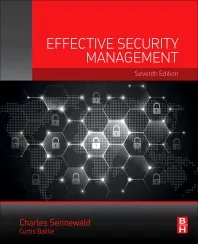New Workplace Violence Film Dispels Myths
According to the new documentary "Murder by Proxy: How America Went Postal," workplace violence stems not from one bad apple but rather a toxic workplace culture.
"Many people look at workplace killers and mass murderers and say oh, they just suddenly snap and go berserk," James Alan Fox, Ph.D., Lipman Professor of Criminal Justice at Northeastern University, said in the documentary. "That's myth."
"Murder by Proxy: How America Went Postal" is framed around the U.S. Postal Service (USPS) shootings in the 1980s and 1990s. The film highlights the 1986 Edmond, Okla., murders, where letter carrier Patrick Sherrill killed 14 people, and the 1991 Royal Oak, Mich., shooting, where Thomas McIlvane, a terminated USPS employee, killed four. The postal service shootings sparked a national conversation, including the phrase "going postal," which was coined in the late 1980s to convey violence.
The documentary follows Charlie Withers, a Royal Oak post office letter carrier and union steward who was present during the deadly Nov. 14, 1991, shooting, as he traveled to Washington state in 2008 to urge lawmakers to pass legislation designed to curb abuses in the workplace.
Withers has worked as a letter carrier since 1975. While productivity was always important, he said it became a much more prominent issue later in his career as his superiors made a bigger push for more output, ultimately creating a toxic work environment.
In the documentary, former USPS employees described difficult management and a toxic work environment while William J. Henderson, who served as USPS Postmaster General from1998-2001, defended USPS.
"We did a study that was published in the year 2000 when I was postmaster general that showed that the incidence of violence in the postal service wasn't any greater than it was anywhere else," said Henderson. "Going postal was a myth."
"Murder by Proxy" describes several workplace shootings performed by employees who recently had been terminated. The film points out that terminated workers often lose a lot more than just their paychecks: a pink slip also can mean a loss of self-worth and a social network. Terminated employees who feel alienated and believe the company treated them poorly may be at a particular risk for taking such drastic action.
Fox calls potential warning signs "yellow flags, which only turn to red flags after the blood has spilled." Companies would like to create a checklist to identify the workers they believe are the "bad apples," but unfortunately, no such guide exists.
The documentary also covers insider sabotage. "Sabotage could be even more deadly and a greater risk to our safety than bringing a gun to work," Fox said. "It could be poisoning products, creating environmental contaminants … These are all the kinds of things that we need to worry about, and ensure that we don't have workplaces full of people who are angry, bitter and feel resentful."
For more information, visit http://murderbyproxyfilm.com.
Looking for a reprint of this article?
From high-res PDFs to custom plaques, order your copy today!





